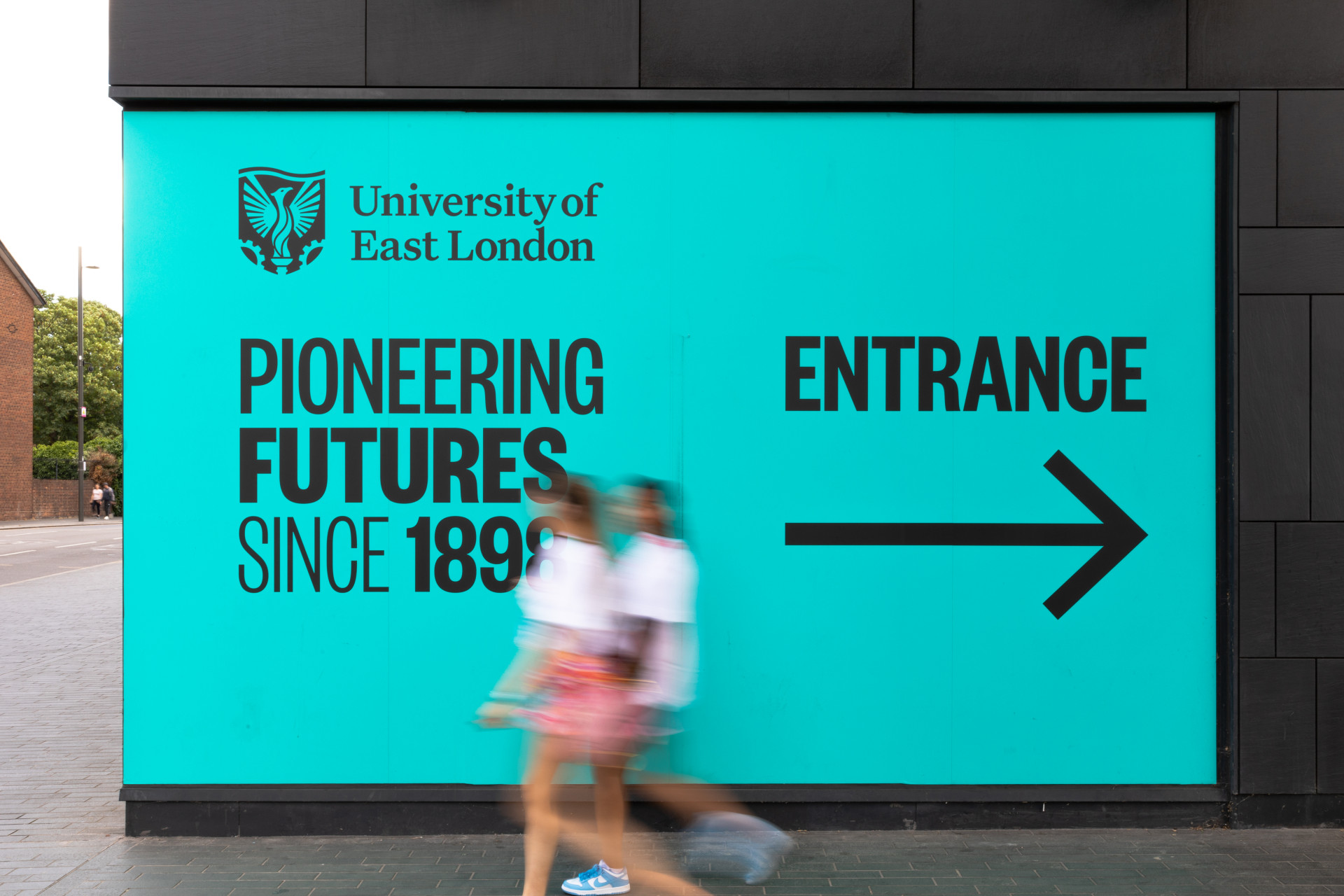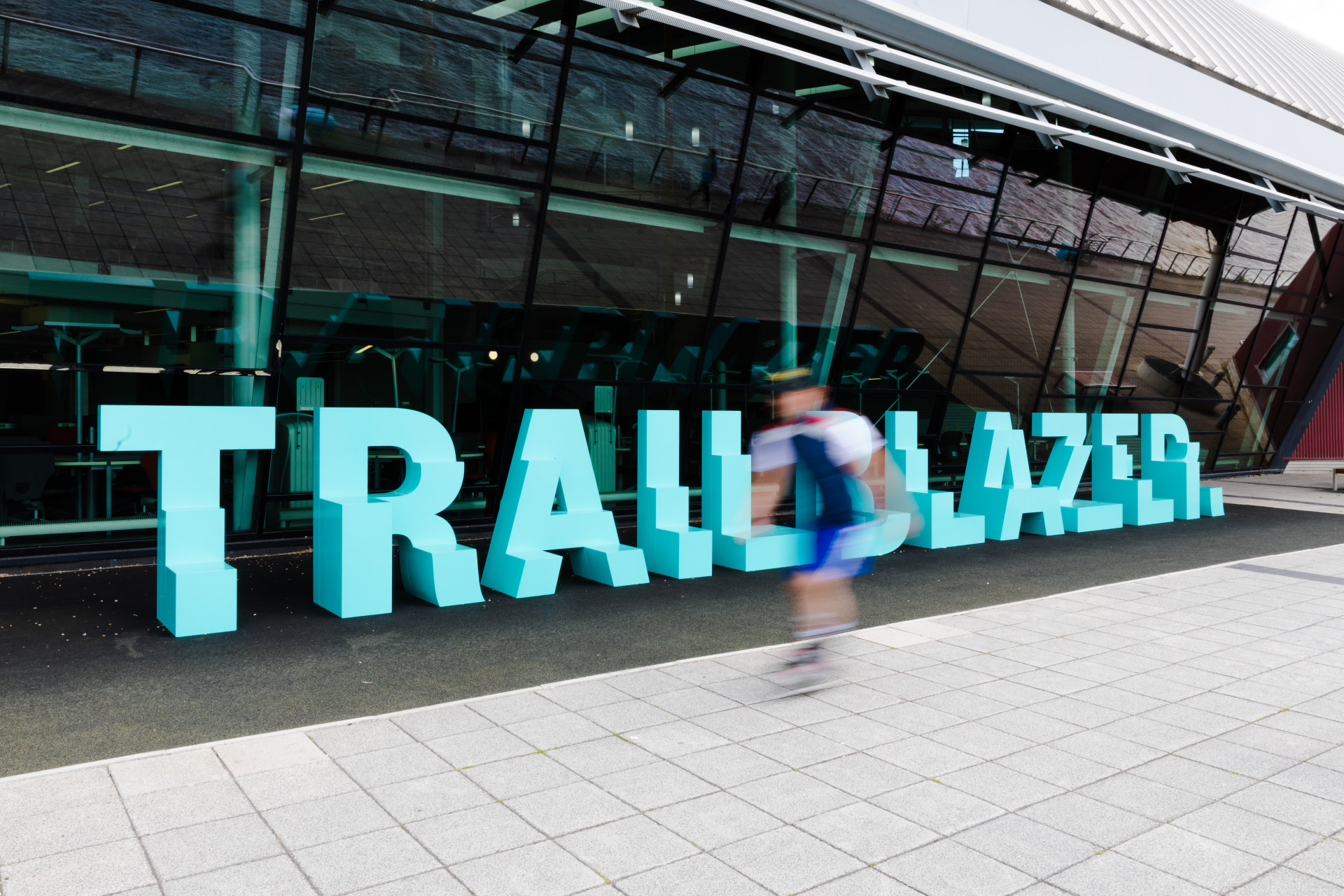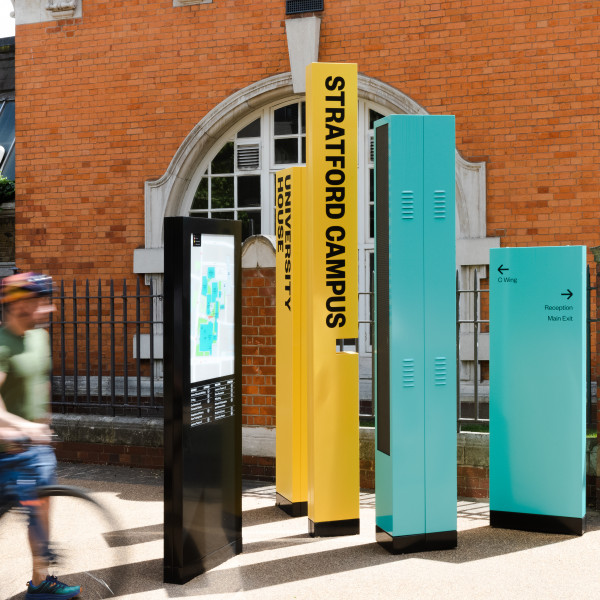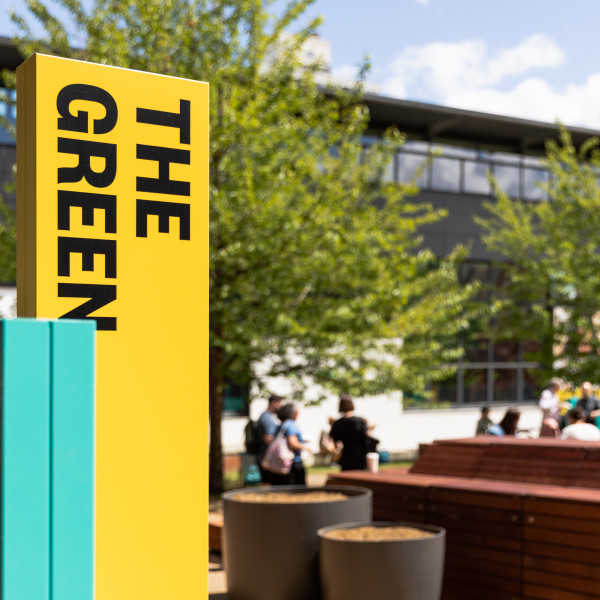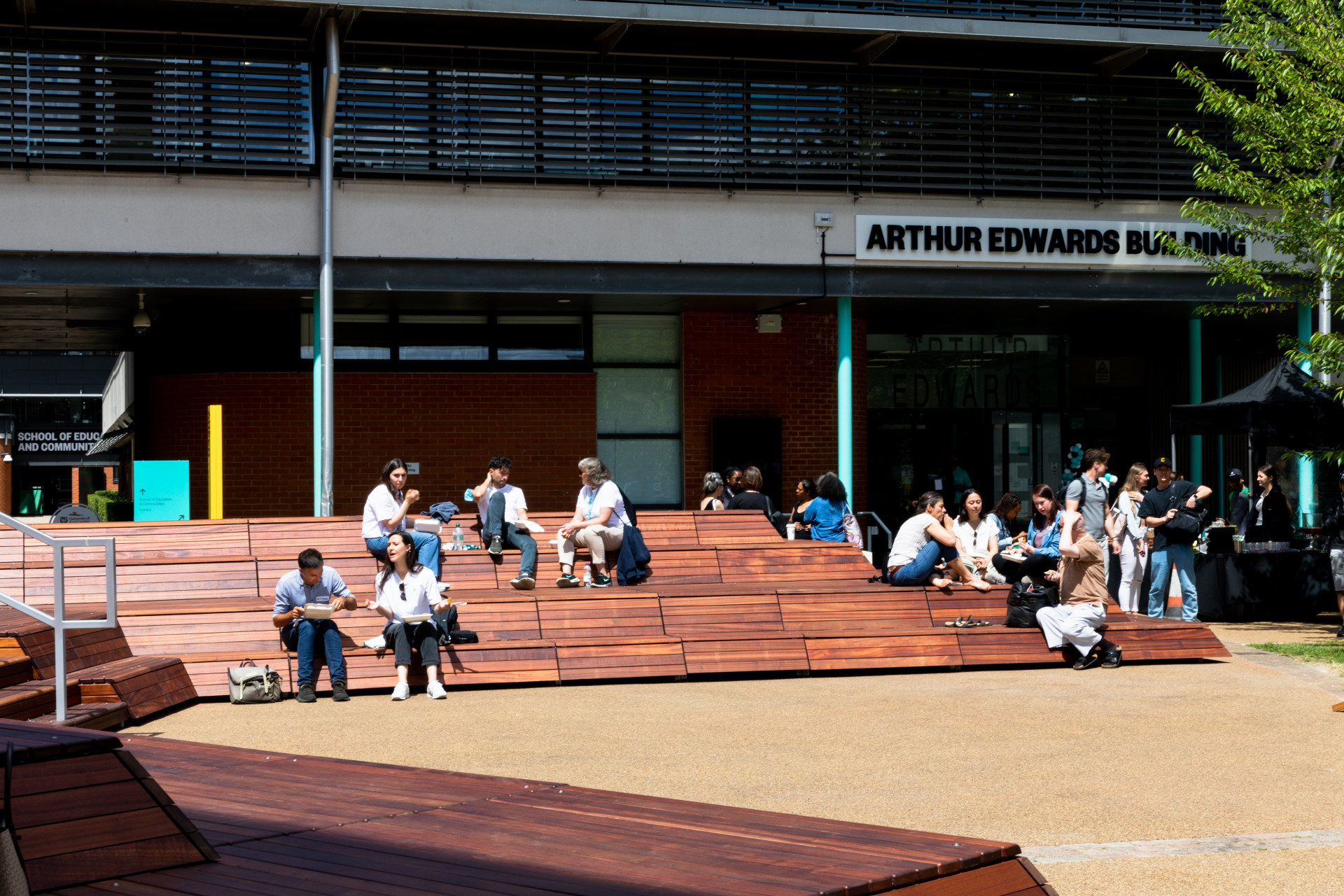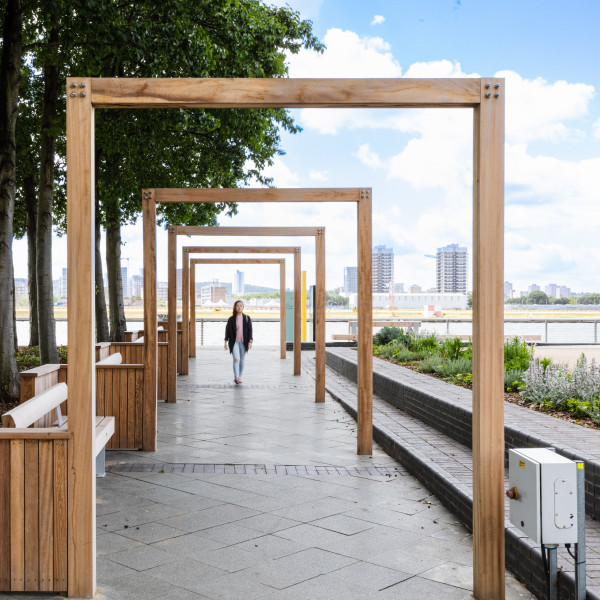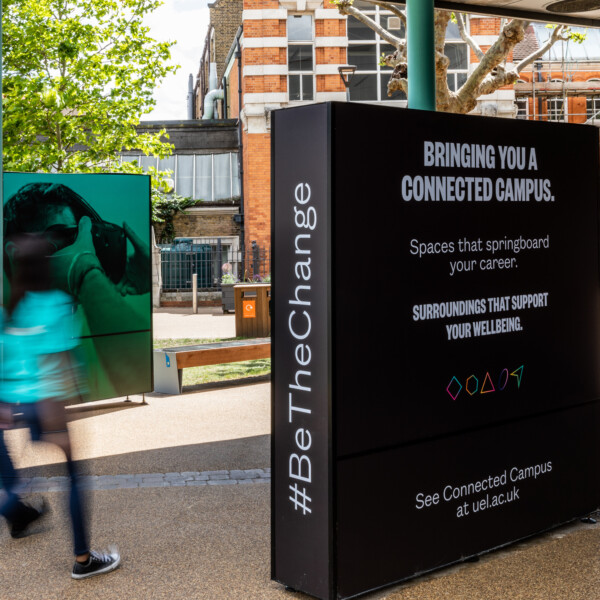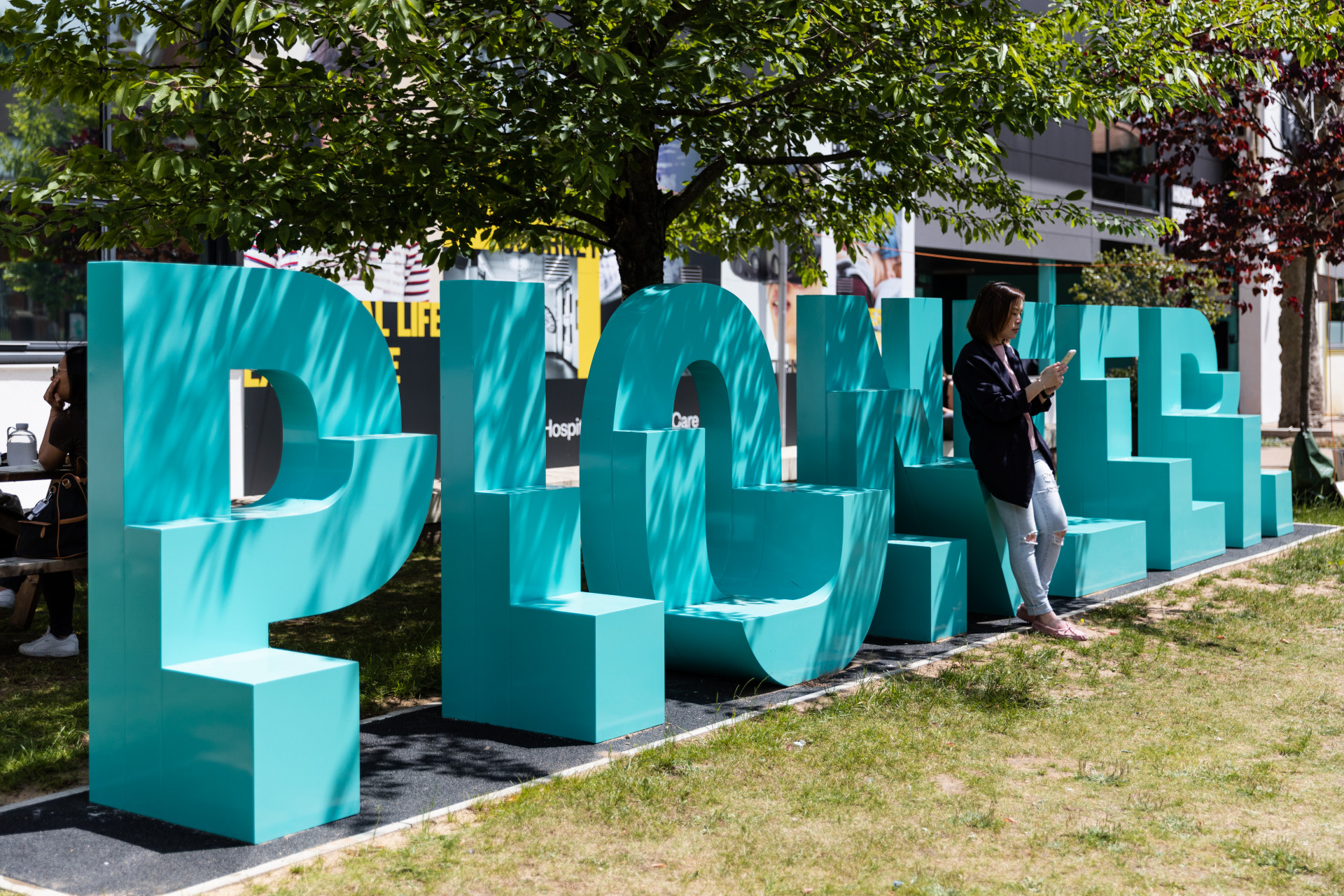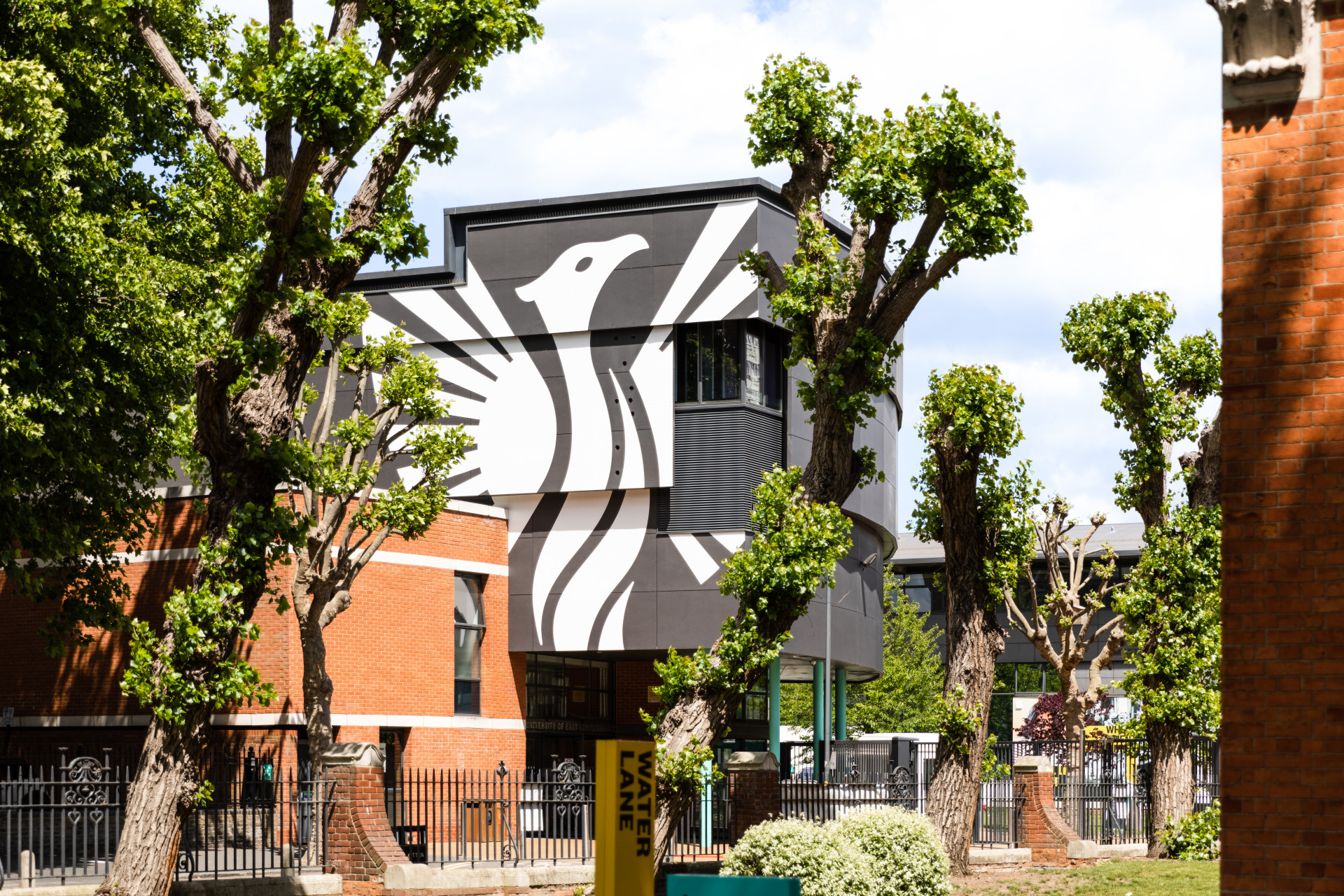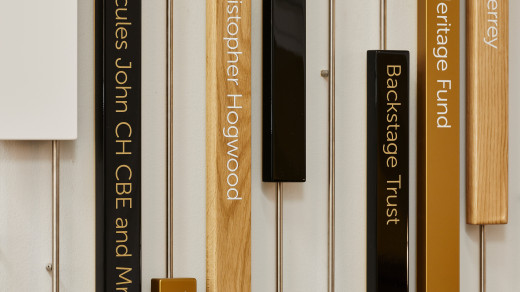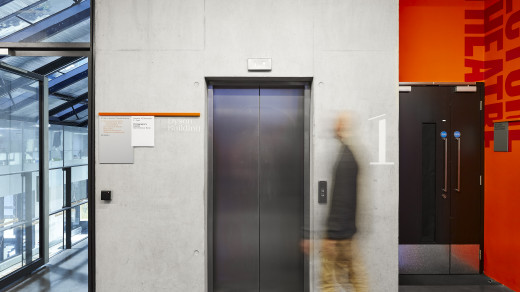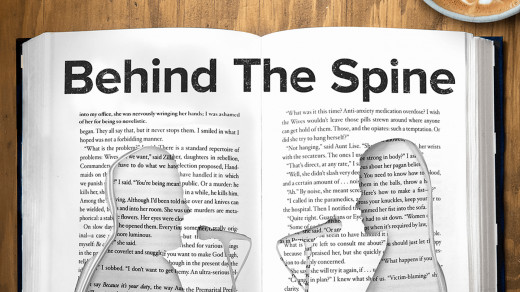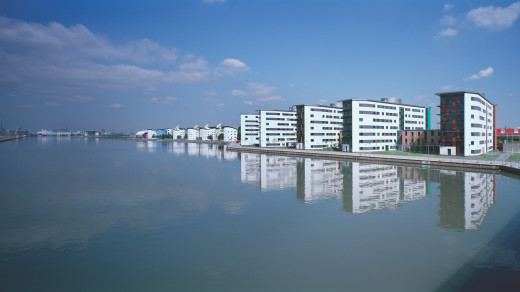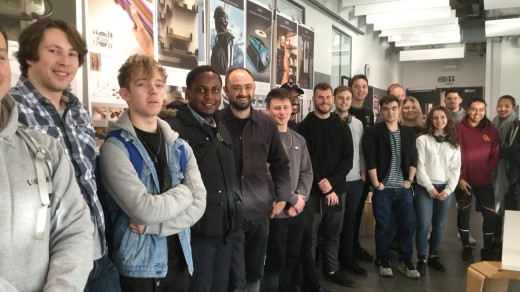UEL's 10-year transformation: redefining campus identity, community engagement through a placemaking masterplan
Since 2018, UEL had been implementing a 10-year transformation strategy to become the country’s leading career-focused higher education provider, prioritising a sustainable and inclusive future.
After launching a new brand hierarchy and visual identity, the institution sought to create a unified and welcoming look and feel for the current estate, which delivered a wow factor in key locations such as campus entrances and could also be rolled out in future locations. The transformation guided by a placemaking masterplan, also aimed to optimise the use of outdoor spaces to promote health and well-being.
Endpoint was appointed by UEL as the lead design consultant on the project, overseeing the selection and appointment of architects (Altitude Design), art consultants (Art Acumen), sustainability consultants (KLH Sustainability) lighting consultants (Lumineer Studio) landscape consultants (Outerspace), exhibition consultants (Outside Studios) and signage fabricator (Douglas Signs). The collaborative efforts of this team were aimed at enhancing institutional pride and celebrating success, while also contributing to a broader strategy to make the campuses more welcoming and accessible to local communities.
Enhancing campus navigation: key findings and strategic direction from user consultations and wayfinding audit
In pursuit of the university’s vision, we conducted extensive user consultations and a comprehensive wayfinding audit. The results of these efforts served as the benchmark for measuring the project’s future success.
On a scale of 1 (not important) to 5 (very important), users on average rated the existing wayfinding at 2.8. At the same time, they scored the importance of wayfinding to the overall on-campus experience at 4.1. Over half the respondents (52%) would ask for directions if lost on campus, whilst 55% said that better signs would make finding their way much easier.
These findings presented a clear and valuable case for improving on-campus wayfinding and placemaking. Using this insight as a basis of our strategic approach, we developed a placemaking masterplan and wayfinding strategy aimed at ensuring a cohesive experience across the three campuses.
Transforming campus experience: bold wayfinding and placemaking masterplan
To align with the university’s vision, Endpoint created a placemaking masterplan and wayfinding strategy, which is bold, vibrant, and connected. Focused very much on developing an overarching concept for the look and feel of the university’s estate, which could be applied to both existing sites and future developments.
Incorporating public seating areas, display panels and digital signage with key storytelling elements, Endpoint aimed to heighten the connection between people and place via content-rich, emotionally compelling, experiential spaces. Through each of these elements, the intention was to shape experiences that orient, inform, educate, and delight everyday users and visitors.
As part of the plan, the campus entrances incorporated external graphics to increase brand visibility and recognition, whilst the outdoor spaces utilised playful and practical features such as creative public seating, bike storage, movable plants, exhibition displays, lighting, and large-scale environmental graphics. Outdoor spaces incorporated playful and practical features such as tiered public seating (using The Forest Stewardship Council (FSC) sourced Iroko hardwood and recycled steel), landscaping, exhibition displays, lighting, and pop-up spaces.
Celebrating 125 years: revitalising UEL's Campus with vibrant wayfinding and placemaking
In 2023, UEL celebrated its 125th anniversary by transforming its Docklands campus into a vibrant, landscaped well-being garden featuring activity trails. Bold storytelling elements now adorn hoardings, walls, and exhibitions across the campus. Additionally, a hybrid wayfinding system, integrating both static and digital signage, has been introduced to ensure flexibility for future navigation needs.
The use of environmental placemaking and graphics in outdoor spaces not only aids wayfinding, but also aligns with UEL’s cultural objectives, seamlessly integrating with landmarks. Feedback from our client confirms that our placemaking efforts have amplified the visibility and recognition of the UEL brand. We take pride in being a part of UEL’s journey and contributing to creating spaces that enhance the user experience.
The success of our placemaking masterplan, wayfinding strategy & design has resulted in us winning an Honour Award in the Placemaking category for the 2024 SEGD Global Design Awards!
“The integration of placemaking and wayfinding underscores the project's strength. The striking totems and bold three-dimensional typography not only serve as focal points but also facilitate navigation, activating spaces and prompting moments of reflection. Furthermore, they foster a sense of connection between students and the surrounding neighbourhood while also extending an invitation to the local community to engage with university spaces.”
“We are delighted with Endpoint’s work on our placemaking masterplan and wayfinding strategy, which earned the 2024 SEGD Global Design Awards Honour Award in Placemaking. Their innovative approach transformed our campuses into vibrant, welcoming spaces and enhanced the overall campus community experience. From the get-go, Endpoint’s user consultations, wayfinding and placemaking design elements have aligned with our vision for showcasing and creating a connected campus. The feedback from students, staff, and visitors has been really positive. Their dedication, creativity, and professionalism have made a lasting impact on the University of East London, and we are proud to have partnered with them on this remarkable project."
